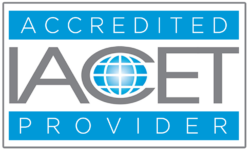Most 21st century organizations, including schools, have come to define collaboration to mean that we function as professional learning communities (PLCs) or professional communities…learning. The essential elements of PLCs are widely recognized as: shared values, beliefs, and understandings; a central focus on student achievement (for schools); making one’s practice public; collaborating with colleagues; and engaging in reflection. In fact, most educators have been inundated with books, DVDs, professional development, and staff meetings urging all of us to live in the “Land of PLCs.”
The challenge for many of us, when it comes to collaboration and PLCs is not the lack of knowledge, but, rather refining our skills so our collaborative efforts produce effective results. It is not enough to attend a pep rally for PLCs or even to hear success stories of schools which function as PLCs. We need the tools to live into this vision each day.
Fortunately, Robert Garmston and Bruce Wellman have identified seven critical skills we need to develop in order to live in “PLC Land.” The Seven Skills of Collaborative Work, as defined by Garmston and Wellman are:
- Pausing – Pausing before responding or asking a question allows time for thinking and enhances dialogue, discussion and decision-making.
- Paraphrasing – Use a paraphrase starter that is comfortable for you, such as, “For you it’s about…” or “You really value…” Follow the starter with a paraphrase, assisting members of the group to hear and understand one another as they formulate decisions.
- Probing for Specificity – Using gentle open-ended probes or inquiries such as, “Please say more…” increases the clarity and precision of the group’s thinking.
- Putting Ideas on the Table – Ideas are the heart of a meaningful dialogue. Label the intention of your comments. For example, you might say, “Here is one idea…” This separates the person from the idea so that others can dialogue about the idea, not the individual.
- Paying Attention to Self and Others – Meaningful dialogue is facilitated when each group member is conscious of self and of others and is aware of not only what he or she is saying, but also how it is said and how others are responding.
- Presuming Positive Intentions – Assuming that others’ intentions are positive promotes and facilitates meaningful dialogue and eliminates unintentional putdowns. Using positive intentions in your speech is one manifestation of this skill.
So, will memorizing this list of seven guarantee a school success? Absolutely NOT. However, if staff members intentionally develop each of these seven skills AND practice them on a daily basis, the building/district will be able to function as a PLC. And when a school’s members function as a PLC and are truly collaborative and reflective, then student achievement will soar.
Reference:
Garmston, Robert J., and Bruce M. Wellman. The Adaptive School: A Sourcebook for Developing Collaborative Groups. 2nd ed. Norwood, MA: Christopher-Gordon, 2009. Print.

